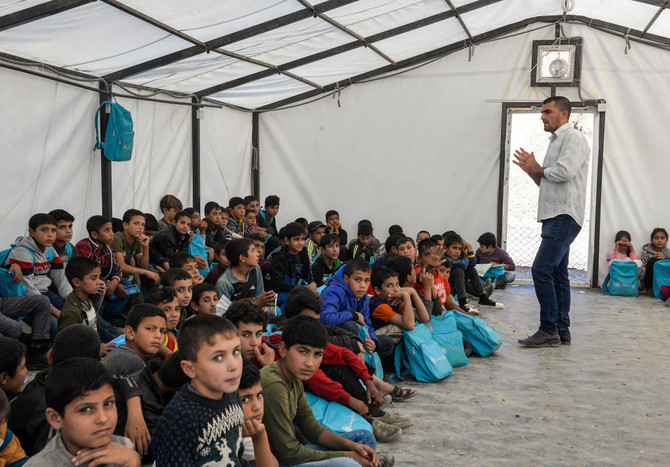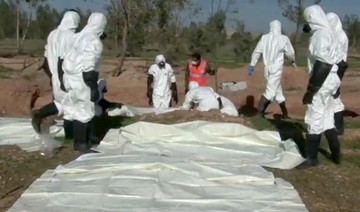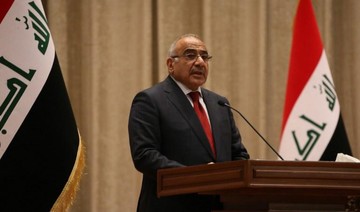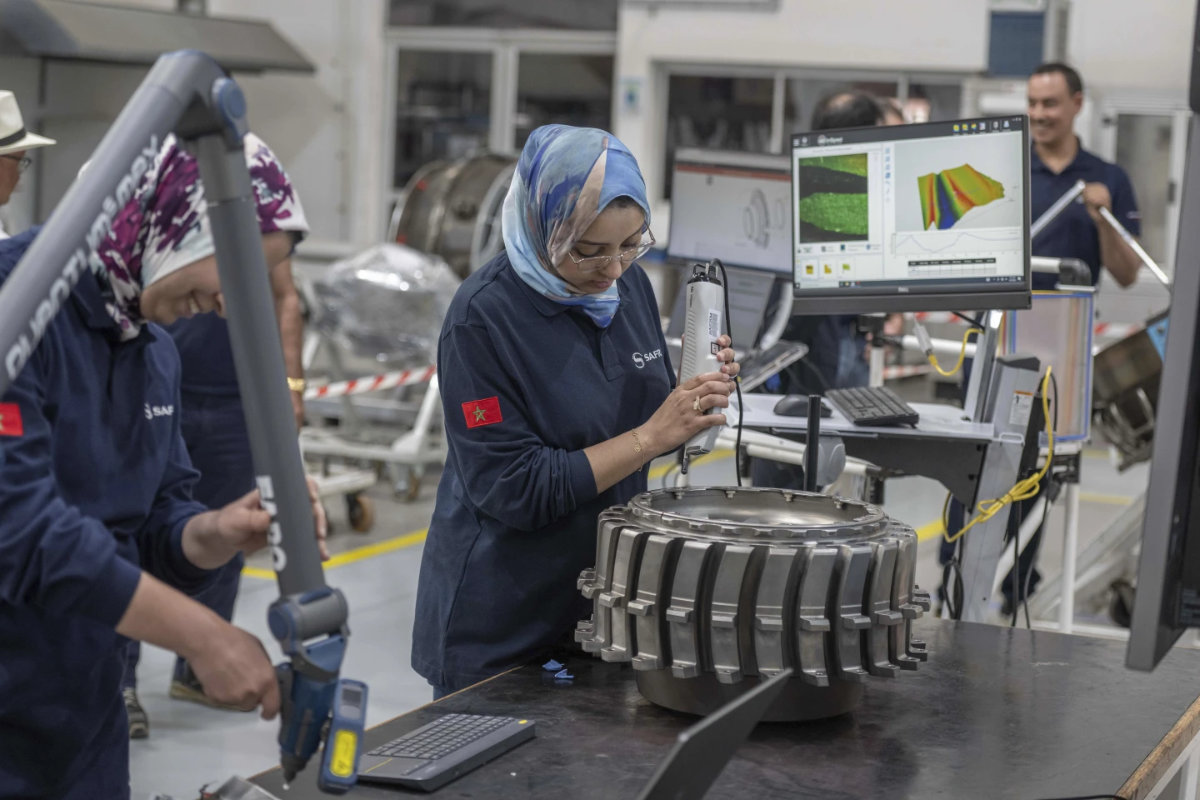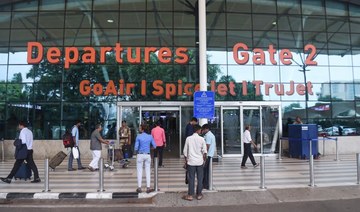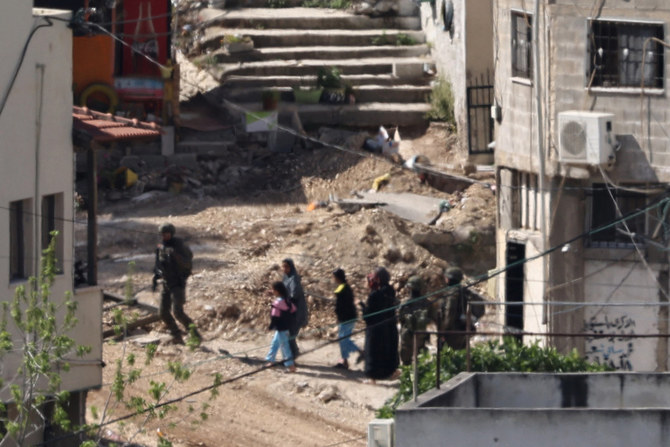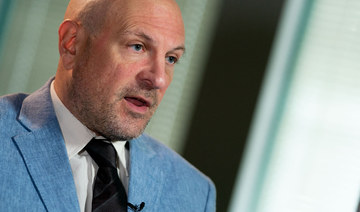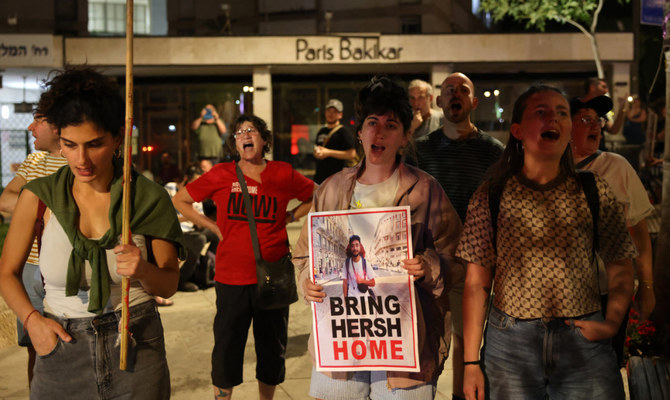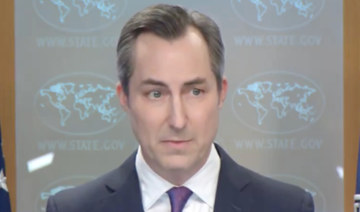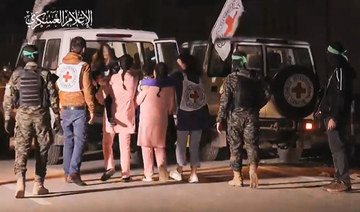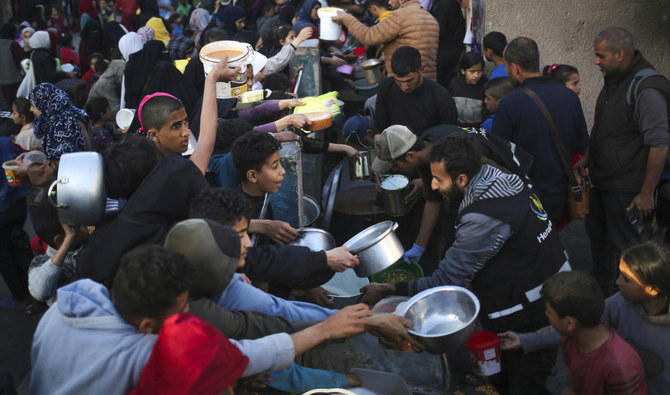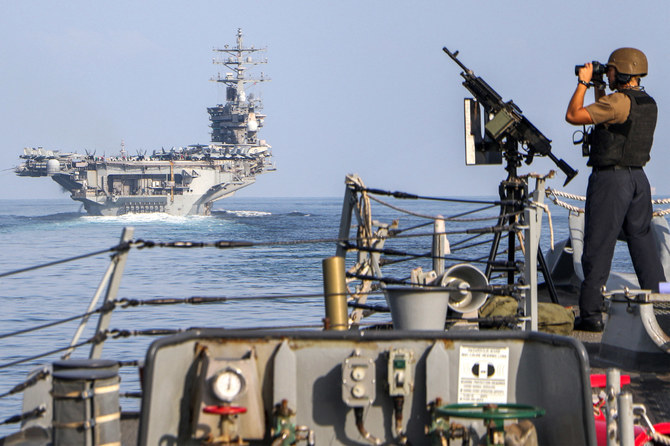HAMMAM AL-ALIL 2 DISPLACEMENT CAMP, Iraq: Maareb has big dreams, but she may never get to realize them. Every day, when her friends attend class in the Iraqi displacement camp they call home, she stays behind.
The makeshift primary school in the dusty Hammam Al-Alil 2 camp in Iraq’s north opened earlier this year, but several thousand displaced children are unable to access it.
For Maareb, the problem is paperwork.
“I want to go to school with my friends, but I’m not allowed because I don’t have an ID,” says the seven-year-old, her plaited hair dangling down her back.
“I want to finish my studies to become a doctor.”
Maareb and her family fled to Hammam Al-Alil 2 a few years ago from Zammar, around 90 kilometers (60 miles) west, as the Daesh group overran the region.
At the time, Maareb had proof of birth provided by a hospital, but no government-issued identification. In the violent chaos of IS’s reign, her father could not acquire the necessary papers to secure her a spot in a classroom.
“Because of our displacement, I was never able to get an ID card for Maareb, so she doesn’t have any paperwork now besides a birth certificate,” says her father, Ibrahim Helo.
Hammam Al-Alil 2 lies in an arid plain just 30 kilometers (20 miles) southeast of Mosul, the historic Iraqi city that became infamous as IS’s de facto capital in the country.
Iraqi security forces retook Mosul last summer, but with no homes to return to, thousands stayed in camps.
Over 1.9 million people remain displaced in Iraq, more than half of them children.
Over the years, Hammam Al-Alil 2 became a bustling settlement: rows of tents with water and electricity access, plus storefronts, playgrounds, and a health center.
But aid groups only established a primary school this year, with five teachers instructing 2,500 kids up to age 10.
That leaves around 5,000 camp children with no schooling, says school principal Ibrahim Khodr, 55.
“There are many reasons kids can’t attend school,” Khodr says.
“No documentation due to displacement, no encouragement by parents to finish schooling, tough financial situations, and the fact that families — especially those without breadwinners — send their children to work.”
Khodr says education authorities in Nineveh province have pledged to establish a school for older kids.
“We can’t keep teaching in these circumstances. The Nineveh education directorate and the ministry of education must act to alleviate this suffering.”
Human Rights Watch researcher Belkis Wille told AFP Iraq’s policy of barring school access for undocumented children was “shocking.”
“Iraq should be engaging in every effort to reintegrate the hundreds of thousands of families who lived under IS for three years,” she said.
“A key way of ensuring they are brought back into the fold is through putting their children back into Iraqi schools as quickly as possible.”
But even with the right paperwork, school remains too expensive for some families. Abdulkhaliq Julud, 37, cannot afford to educate his five children.
“Our difficult financial situation means I can’t buy what they need for school: clothes, backpacks, notebooks,” says Julud.
“I’m unemployed and we don’t have savings. We live off whatever food aid we get in the camp.”
Iraqi students from poorer backgrounds are much less likely to attend or finish school than wealthier classmates, the United Nations children’s agency (UNICEF) says.
Nineveh in particular has one of the lowest completion rates for primary or secondary schools.
According to UNICEF, 80 percent of Iraqi children have been violently disciplined in their lifetimes.
Across the country, 3 million children don’t have regular access to education. Half of public schools must be repaired and another 7,500 built to accommodate out-of-school kids.
In Nineveh, the education directorate has deployed caravan schools to maximize class time, but is facing its own shortages, too.
“The directorate is operating with just half its staff, after many were displaced to the Kurdish region or Baghdad and others retired,” says associate head Khaled Jumaa.
The scars from the recent conflict go beyond depleted teaching cadres: in November, unexploded ordnance killed three children in their school bus outside Mosul.
In Hammam Al-Alil 2, children — some barefoot — shuffle to ten tents that make up their school. During storms, the torn tarps leak water onto the kids.
There are no desks or chairs. Students are crammed shoulder-to-shoulder on the ground, girls on one side and boys on the other.
Their instructor paces down the aisle in between, trying to explain Iraqi geography without a chalkboard or map.
“Our main river is the Tigris,” he says, helplessly gesturing as confused students looked on, their heads in their hands.


